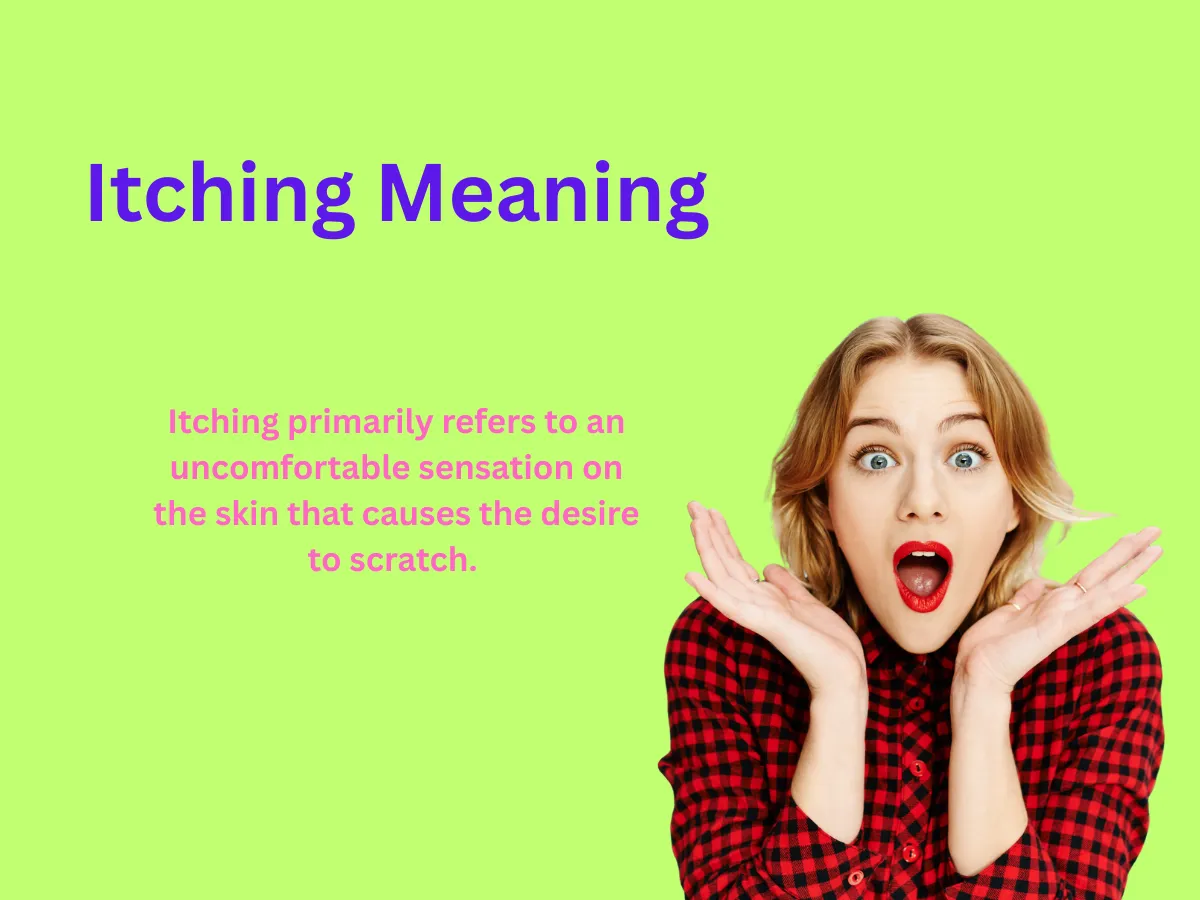Itching Meaning isn’t just about skin — it’s about craving, curiosity, and that restless urge we all feel sometimes. Itching often refers to an uncomfortable skin sensation that makes you want to scratch — but in modern slang, it carries playful, emotional, and even metaphorical meanings. You might see it online in phrases like “I’m itching to know” or “She’s itching for drama.”
While the literal meaning describes a physical feeling, the slang form of itching expresses restlessness, strong desire, or anticipation in casual speech and online conversations.
In this guide, we’ll explain the meaning of itching in slang, explore its origins, show how it’s used in different contexts, clear up misconceptions, and share alternatives with examples.
What Does Itching Mean in Slang?
In slang, itching means having a strong urge or desire to do something. It’s often used to describe impatience, curiosity, or excitement. For example, when someone says “I’m itching to tell you,” they mean they’re eager to share something — not that they physically itch.
Example Sentences:
- “I’m itching to see how this ends.”
- “She’s been itching for a fight all day.”
- “He’s itching to travel again.”
Key Points to Remember:
- Literally: Refers to a skin irritation or sensation.
- Figuratively: Expresses eagerness or restlessness.
- Common in everyday English and online speech.
- Not considered vulgar — generally safe in most contexts.
Background & History
The word itching comes from Old English giccan, meaning “to scratch or feel an irritation.” Over time, it developed a figurative sense describing emotional or psychological tension — like a “mental itch” that needs relief.
By the 20th century, expressions like “itching to go,” “itching for adventure,” and “itching to find out” became common idioms in English, eventually evolving into casual slang online.
Usage in Various Contexts
1. Texting
Used to express excitement, impatience, or curiosity.
A: “Got the news?”
B: “Not yet, I’m itching to hear it!”
2. Social Media
Often used in captions, memes, or tweets showing anticipation.
Example: “Itching for the weekend already 😩✨”
3. Gaming
Used metaphorically for eagerness to play or win.
Player 1: “Ready for the next match?”
Player 2: “I’ve been itching to play all day!”
4. Daily Conversations
Commonly used in everyday talk.
Friend 1: “You look restless.”
Friend 2: “I’m just itching to start my trip.”
5. Professional Settings
Used politely to express motivation or drive.
Example: “Our team is itching to launch the new project.”
Common Misconceptions & Clarifications
Misconception 1: Itching always refers to skin irritation.
Reality: In slang, it describes emotional eagerness or tension.
Misconception 2: It’s a negative expression.
Reality: It can show positive excitement or motivation, too.
Misconception 3: It’s informal slang only.
Reality: Itching is acceptable in both casual and semi-formal speech.
Similar Terms & Alternatives
| Term | Meaning | Example |
|---|---|---|
| Eager | Excited or ready to do something | “I’m eager to meet them.” |
| Anxious | Restlessly waiting or nervous | “He’s anxious for the results.” |
| Restless | Unable to stay calm | “She’s restless waiting for the call.” |
| Impatient | Finding it hard to wait | “I’m impatient to start the movie.” |
How to Respond to This Term
Casual Response:
- “Same! I’m itching for it too 😅”
- “Can’t wait either!”
Funny Response:
- “Better scratch that itch before it gets worse 😂”
- “Itching? Sounds serious, lol.”
Professional Response:
- “I share your enthusiasm.”
- “We’re equally eager to begin.”
Regional or Cultural Differences
- Commonly used in the US, UK, and Canada.
- Recognized globally through the media and English learning.
- In some cultures, it might retain its literal medical meaning more strongly.
Hidden or Offensive Meanings
Unlike many slang terms, itching isn’t vulgar. However, in certain contexts (like “itching for a fight”), it can imply aggression or impatience, depending on tone.
Suitability for Professional Communication
- ✅ Safe for professional use when meaning “eager” or “motivated.”
- ❌ Avoid if context sounds confrontational or emotional.
FAQs
What does “Itching” mean in slang?
It means having a strong desire or urge to do something, like “itching to know” or “itching to start.”
Can it be used in casual conversation?
Yes, it’s a natural and common way to express eagerness.
Is it appropriate at work?
Yes — especially when expressing motivation or anticipation.
Is it always literal?
No, the slang form is completely figurative and emotional.
Are there synonyms?
Yes: eager, restless, impatient, or anxious.
Conclusion
In short, Itching can mean both a physical irritation and a strong emotional urge in slang. Whether you’re itching to leave, itching to win, or itching to know the truth, it reflects anticipation and excitement rather than discomfort.
Understanding itching meaning helps you use the term naturally in both casual and professional settings — expressing motivation, eagerness, or curiosity in everyday speech.

